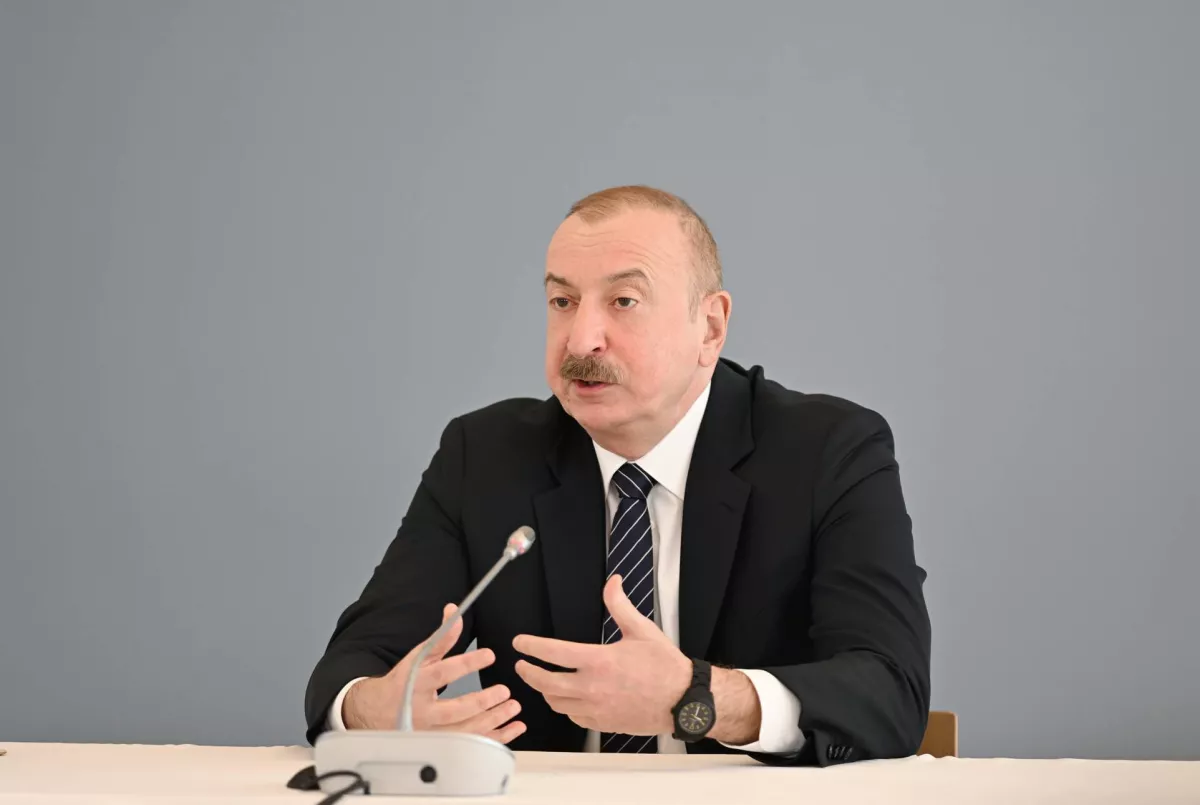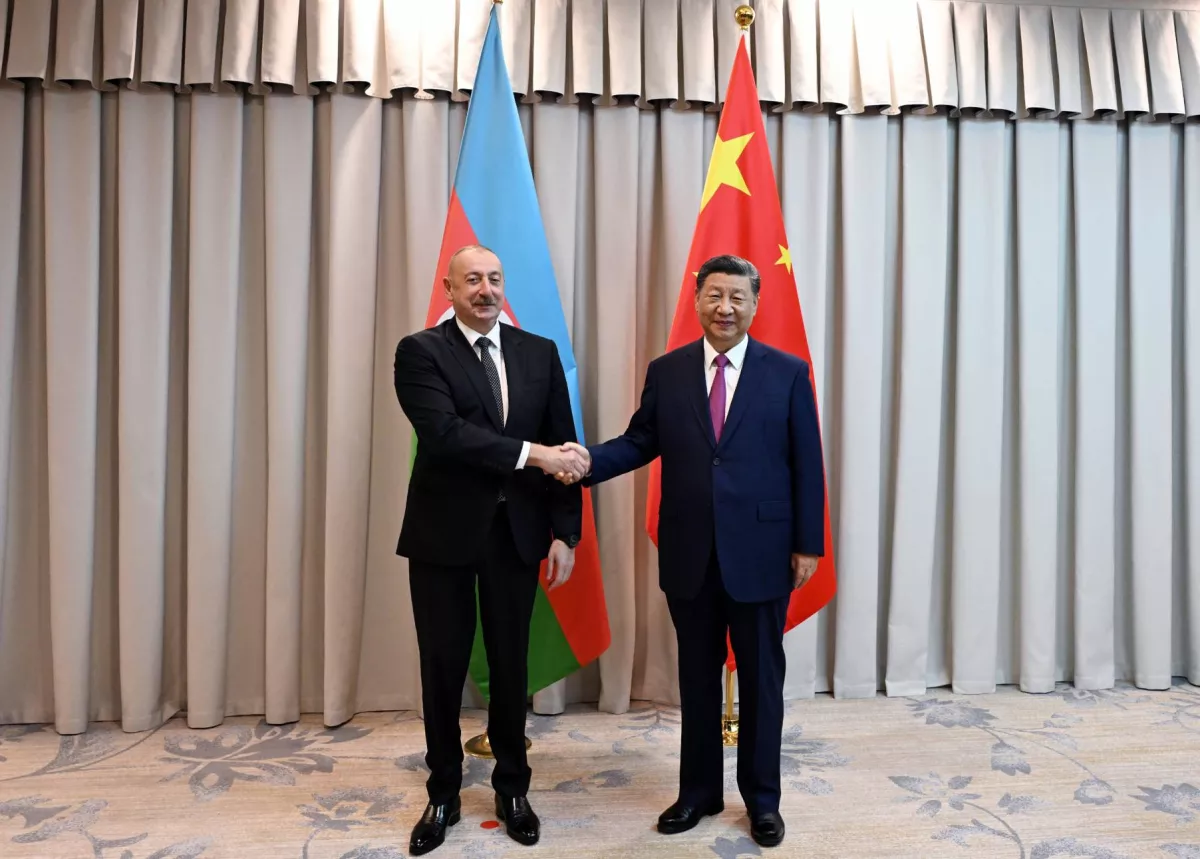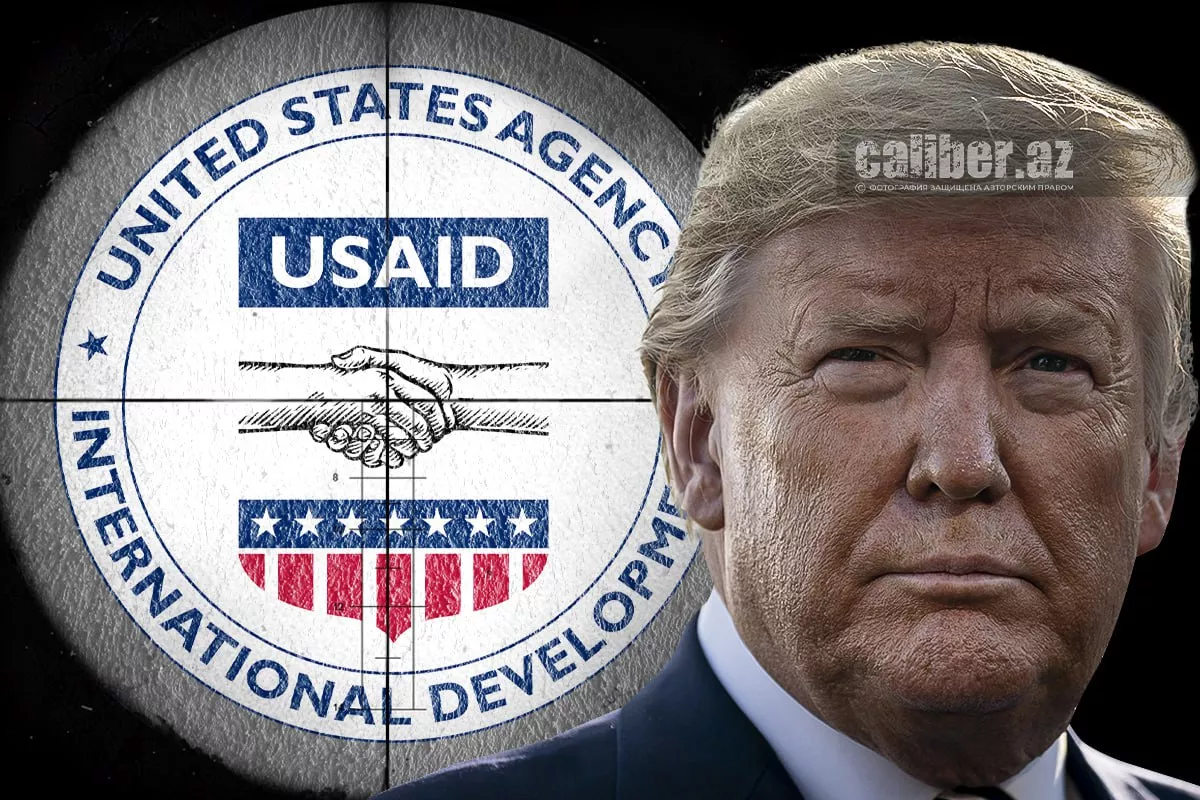Baku: Hub for shaping key trends of modern times Following President Aliyev’s messages
Against the backdrop of a stagnation in political, economic, and philosophical thought across nearly all regions of the world—and a general state of deadlock—Azerbaijan has once again emerged as a powerful geopolitical link shaping key trends of the modern era.
The reader has likely already understood that this refers to the latest programmatic statements made by Azerbaijani President Ilham Aliyev during an international forum held at ADA University. But before delving into the details of the President's remarks, it is important to highlight the theme of this high-level event: “Facing the New World Order.” This theme clearly demonstrates continuity with the recently concluded 12th Global Baku Forum, held less than a month ago under the slogan “Rethinking World Order: Turning Challenges into Opportunities.”
In light of President Ilham Aliyev’s focus at that previous forum, his latest address can be seen as a continuation of his reflections on global developments. His message provided further insights into the current transformations taking place around the world, while also outlining potential pathways for navigating this exceptionally complex period in global history—not only for regional players, but also for geopolitical powers beyond our immediate environment.
And this particular nuance is crucial to understanding the broader reality: the world is now undergoing a significant transformation, including the growing prominence of states commonly referred to in recent discourse as “middle powers.” In truth, the so-called “middle” tier—regardless of whether some may disagree with the terminology—is steadily acquiring the contours of a force capable of shaping global trends, not only during this transitional historical phase but also in the future.
This was clearly reflected in the points made by the head of state. To begin with, it is worth noting President Ilham Aliyev’s emphasis on Azerbaijan’s complete elimination of dependence on international financial institutions. Elaborating on this, President Aliyev stated: “We stopped cooperation with the IMF soon after I was elected President for the first time. With other financial institutions, we either completely emptied the portfolio or were very close to that.” He went on to highlight that the country’s external debt amounts to just $5 billion, which is “less than 7% of our GDP.” According to the President, these figures clearly demonstrate that Azerbaijan has no need for borrowed funds.
However, he added, “we've been approached by financial institutions with offers to borrow funds, and we are now working with them because we do not want to completely empty the portfolio.” That said, “among our main partners, with respect to financial institutions, we also have the Asian Infrastructure Investment Bank, which was created at the initiative of China. So, from this point of view, it's difficult to comment, because actually, this is not on my agenda, since it is done.”
In this context, it is important to recall President Ilham Aliyev’s remarks made back in 2022, when he predicted an impending global economic downturn—potentially even a recession—while emphasising that Azerbaijan lives within its means. At the time, President Aliyev stated: “No-one is helping us, never has helped and never will. Therefore, we are creating our own life. We do not interfere in anyone's affairs, but at the same time we will not let anyone interfere in our affairs either.” He concluded with a clear assertion that economic independence is the cornerstone of a state’s political independence.

It is fair to say that these words, spoken three years ago, now carry even greater weight in light of current global developments—especially considering Azerbaijan’s firm and confident stance in the evolving world order, across various geopolitical vectors. It is no coincidence that the head of state recently called on the European Commission to take off the rose-tinted glasses and to recognise, with a realistic view of the world, the contributions of countries like Azerbaijan—rather than dividing the Caucasus into favourites and outcasts. “They should behave as good partners. We are ready for that,” he affirmed.
In this regard, the European Union has likely already taken note of the data presented by President Aliyev on April 4 during the 11th Ministerial Meeting of the Southern Gas Corridor Advisory Council. He stated that since the signing of the 2022 Memorandum of Strategic Partnership in the field of energy between Azerbaijan and the European Commission, the country’s gas exports to Europe have increased by nearly 60%. Today, Azerbaijan supplies natural gas to 12 countries—10 of which are European, and 8 are EU member states.
Notably, in a recent conversation with the President of Azerbaijan, EU Commissioner for Energy and Housing Dan Jørgensen expressed gratitude to the Azerbaijani government for its contribution to Europe’s energy security, highlighting the great importance of cooperation with Azerbaijan.
In this context, President Ilham Aliyev described the European market as the primary destination for Azerbaijan’s energy exports and reaffirmed his country’s intention to expand the geographical reach of its exports within this market.
During the ADA University forum, the President Aliyev made another significant statement, emphasising that PACE deprived the country of voting rights for restoring its own sovereignty and territorial integrity. As a result, “we decided that under these circumstances, we would just come home. Since that time, we have not participated in their sessions.”
Given this context, he continued, “taking into account that we did not participate in the election of judges for the European Court of Human Rights, all the decisions of the European Court, for us, are invalid. This is a position we elaborated, and I just take this opportunity to announce that none of the decisions of the European Court are valid for us because we were deprived of our voting rights. We did not vote for these judges. We don't know who these judges are. So, I think the Council of Europe shot itself in the foot. They wanted to discriminate against Azerbaijan, to isolate us, but actually, they isolated themselves from the Caucasus.”
Naturally, in his address at the ADA University forum, President Ilham Aliyev paid special attention to the future of the Organisation of Turkic States (OTS). Reaffirming Baku’s consistent support for cooperation among Turkic world countries, the head of state highlighted the importance of unity among member states through shared historical and ethnic roots, linguistic similarities, common culture, and traditions.
“We want to see the organization more consolidated and more result--oriented,” President Ilham Aliyev emphasised, and Azerbaijan is doing everything it can to help make that a reality. At the same time, he noted, “should not miss this opportunity to convert our organization into an important global actor. There is a great potential for that. A huge geography, human resources, natural resources, transportation routes, and this organization is based on ethnic roots.”
Within this context, he stated, the OTS could become a centre of international activity on a global scale. President Aliyev also underlined Azerbaijan’s active role in supporting the Turkish Republic of Northern Cyprus in obtaining observer status within the OTS, saying, “we are always with our brothers. Our policy is always very clear and straightforward. We don't have any other agenda other than how we can be helpful to our brothers in Northern Cyprus, who deserve to have their own state.” After all, he added, “they deserve it by history and by their actions.”
In the context of international organisations, Ilham Aliyev offered a notably elegant characterisation of Azerbaijan’s four-year chairmanship of the Non-Aligned Movement (NAM), saying: “We left a good legacy.” The momentum Baku introduced to NAM during a period of relative weakening—particularly through the establishment of parliamentary and youth platforms—clearly demonstrates Azerbaijan’s commitment to institutional development aimed at transforming the movement into a very influential international organisation.
On the regional front, President Ilham Aliyev underlined the strategic nature of Baku–Tbilisi relations, which, he noted, are rooted in historical ties. He highlighted that since gaining independence, Georgia and Azerbaijan have continuously demonstrated friendship, partnership, and a high level of mutual understanding.In this context, he affirmed that the emergence of the South Caucasus as a strategically important region is the result of the efforts and achievements of Georgia and Azerbaijan.
Against this backdrop, the President expressed surprise at recent remarks made by European Commission President Ursula von der Leyen concerning the opening of borders between Azerbaijan and Armenia, and between Armenia and Türkiye, allegedly to support the Middle Corridor. As Ilham Aliyev pointed out, the route already exists, and Armenia plays no role in it. He stressed that it is Georgia and Azerbaijan that have built all the infrastructure enabling Europe to engage with Central Asia.
In his analysis of the evolving situation in the region, President Ilham Aliyev emphasised that Azerbaijan cannot overlook the terrorist attack on its embassy in Iran two years ago. He underscored that the full normalisation of relations between the two countries depends on holding the perpetrators of the attack, as well as those behind the terrorists, accountable and ensuring they are brought to justice.
In this context, the President also noted the positive signals emerging from Iran, a nation with which Azerbaijan shares an extensive transportation and economic agenda. This focus was reinforced a day prior to the ADA forum, when, in a meeting with Iran’s Minister of Roads and Urban Development, President Aliyev highlighted the increased frequency of high-level reciprocal visits between Azerbaijani and Iranian delegations in recent months. These visits, he stated, offer a valuable opportunity to strengthen the friendship between the two nations and enhance bilateral cooperation.
On the Iranian side, there was an emphasis on the deep historical, cultural, and religious ties between the two peoples, bonds that form the basis for further developing their relations.
In the context of Azerbaijan's relations with China, President Ilham Aliyev highlighted the active cooperation between Baku and Chinese companies, specifically noting the invitation extended to them to become strategic partners in various sectors, particularly in the field of green energy. The President also mentioned ongoing negotiations with several Chinese companies regarding direct investments in the green energy sector.
In this regard, the Strategic Partnership Declaration signed less than a year ago between China and Azerbaijan was described by President Aliyev as a significant milestone in bilateral relations. The Declaration outlines the mutual commitment to expand cooperation in the political, economic, and cultural spheres, strengthen collaboration in international affairs, jointly protect the interests of both countries, and work together to promote regional and global peace, stability, and development.

In the context of relations between Baku and Washington, President Ilham Aliyev emphasized that Azerbaijan has always sought to maintain good relations with the United States, the strongest country in the world. However, during the Biden-Blinken administration, a crisis emerged in U.S.-Azerbaijan relations, resulting from what he described as the anti-Azerbaijani policies of the State Department under Blinken’s leadership and several figures in President Biden’s administration who opposed Azerbaijan.
Ilham Aliyev noted that when Azerbaijan was needed by the U.S., Section 907 of the Freedom Support Act was suspended every year. But once the Biden-Blinken administration withdrew from Afghanistan, they reintroduced it against Azerbaijan. He expressed disbelief at the ungratefulness of the move, questioning how the White House could be so short-sighted, considering the long-term damage to its credibility.
Furthermore, the president pointed out that the Biden administration clearly aligned itself with Armenia, a stance that had not been seen before in the history of the Armenian-Azerbaijani conflict. However, as soon as the Biden-Blinken team left office, the negative rhetoric towards Azerbaijan ceased, and high-level contacts were soon re-established between the Trump administration and Azerbaijan.
Aliyev expressed optimism for the future of U.S.-Azerbaijan relations, given the productive and mutually acceptable nature of the action plan that had been in place during the Trump administration. He suggested that this period could present a valuable opportunity to strengthen the partnership, given the positive experience Azerbaijan had during Trump’s first term.
Following this statement, the President provided his perspective on the actions of the 47th U.S. President, particularly praising some of his promising steps in various directions. This included addressing the "completely corrupt" USAID and suspending the activities of radio stations such as Radio Liberty and Voice of America. However, Ilham Aliyev emphasized that these measures were insufficient and underscored the need to curb the activities of organizations like Human Rights Watch, Freedom House, and Amnesty International. The President openly stated that "all this infrastructure of [...] political enemies must be totally made dysfunctional," highlighting that Azerbaijan, having faced coordinated campaigns against it, has a clear understanding of how such systems operate.
On a broader scale, in the context of the current administration’s actions, Aliyev noted that Trump's current policy will be more focused on the national interests of America, and solid relations with them are crucial for the region. He reminded that Azerbaijan is a leading country in the South Caucasus and part of the global South, emphasizing Baku’s strong position within the Non-Aligned Movement (NAM) and its good relations with the Central Asian countries. He further underlined Azerbaijan’s economic strength, its energy resources, and its military, which has proven its might on the battlefield, suggesting that Baku "can be a very important partner for the United States." In this regard, he highlighted the importance of a "very strong predictable, long-term strategic relationship with the new administration."

In the Middle Eastern context, President Ilham Aliyev expressed regret over the pro-Armenian, anti-Azerbaijani stance of the previous leadership of Syria, while reaffirming Azerbaijan's support for the new Syrian government. At the same time, it is well known that Turkish-Israeli relations have notably deteriorated in recent times, particularly with respect to Syria. Naturally, in his address at the forum, the President could not overlook this issue. He emphasized that "We are allies with Türkiye… and Israel is a friendly nation to Azerbaijan."
In his important clarification, Aliyev stated that this mutual friendship, developed over many years, has been demonstrated in various complex situations. Therefore, the " tensions between the two countries are very disturbing for us, and a matter of concern." Against this backdrop, the President highlighted that Azerbaijan played a key role in the initial successful reconciliation between Türkiye and Israel, positioning the country as number one in this process.
This reference to recent history clearly signals Azerbaijan's readiness to once again exert every effort to resolve the challenges in Turkish-Israeli relations. Moreover, it indicates not only willingness but also tangible steps already taken: "We are doing the same now, and we hope that the process will lead to normalization."

Interestingly, the Turkish-Israeli format in the context of Azerbaijan has recently emerged in a rather unique light. For instance, during a conversation on April 4th between President Aliyev and Turkish Minister of Energy and Natural Resources, Alparslan Bayraktar, the cooperation between SOCAR, Türk Petrolları, and BOTAŞ was positively assessed. The significance of the document signed between Azerenergy and the Turkish TEIAS regarding the export of 75 megawatts of electricity from Nakhchivan was also highlighted, along with plans for a memorandum to expand cooperation in the green energy sector between Azerbaijan, Georgia, Türkiye, and Bulgaria.
On the other hand, recently, a working visit to Israel is being conducted by the leadership of the country's Innovation and Digital Development Agency, during which both sides are assessing opportunities for collaboration on joint investment projects, the transfer of advanced technologies to Azerbaijan, and the exchange of experiences and knowledge between startups, among other matters. This information speaks for itself.
Regarding the situation in Gaza, President Ilham Aliyev stated that Azerbaijan has been actively advocating for a ceasefire and the cessation of military actions from the very first days of the crisis, with the country’s position remaining unchanged. He also highlighted that Azerbaijan's role in the Islamic world is highly valued by Muslim communities. In particular, the country's actions concerning solidarity among Muslim countries are praised by religious and political leaders across the Muslim world, including the Organization of Islamic Cooperation and the Arab League.
In his recent address, President Ilham Aliyev also emphasized the importance of Azerbaijan's African strategy, stating that the country has already defined a policy for establishing close relations with African nations. This direction, according to the president, was not formed spontaneously. He highlighted that during COP29, Azerbaijan successfully facilitated contacts between the Global South and the Global North, accomplishing its goal in the process. As a result, the country’s agenda is clear, and there has been a positive response from many African countries. President Aliyev noted that there is nothing surprising in this development, as Azerbaijan has always supported its friends in Africa when needed. For example, during the COVID-19 pandemic, Azerbaijan provided financial and humanitarian aid to over 80 countries, the majority of which were in Africa. He also pointed out that Azerbaijan supports educational and medical programs in the region, including offering scholarships to students from Africa.
The points raised in President Ilham Aliyev's speech undoubtedly highlight the growing influence and authority of Azerbaijan on the international stage. In this context, it is clear that, in a rapidly changing world, certain states, once seen as the driving forces shaping global agendas, are giving way to new centers of power. As President Aliyev emphasized, this shift is grounded in Azerbaijan's stable and self-sufficient economy, a stable political system, and the full consolidation of society around the national idea. Additionally, the victory in the Second Karabakh War further united the nation.
This is a crucial message for all stakeholders!








